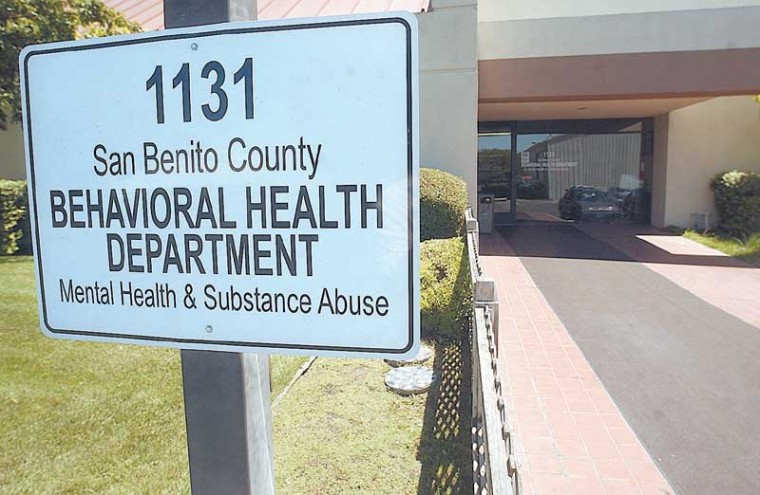
Hollister
– A civil grand jury final report released Wednesday for its
2006-07 session shows that the San Benito County Behavioral Health
Department has operated with a 30 percent shortage of case
workers.
Hollister – A civil grand jury final report released Wednesday for its 2006-07 session shows that the San Benito County Behavioral Health Department has operated with a 30 percent shortage of case workers.
The county’s grand jury is impaneled with up to 19 members each year and investigates local government agencies throughout its session. Its findings are made available to the public in a final report.
In its report, the grand jury made five recommendations to the Behavioral Health Department. They included the following:
* increasing recruitment of clinicians
* updating references and contact information for substance-abuse programs on its Web site
* providing on-site mental health screening for schools and maintaining students’ cases through the summer break
* increasing its community outreach and awareness programs
* establishing performance goals
Department Director Alan Yamamoto declined to comment on the grand jury’s findings Wednesday, citing county protocol. County Administrative Officer Susan Thompson said Wednesday that Yamamoto could not comment on the grand jury findings because he must give a response to the San Benito County Board of Supervisors, which responds for departments.
“The director doesn’t respond to the grand jury,” Thompson said. “The Board of Supervisors responds to the grand jury.”
County supervisors had not received the report Wednesday. Agencies have 90 days to respond to the grand jury report, Thompson said.
Staff Shortage
The grand jury found that from December 2005 to June 2006, the San Benito County Behavioral Health Department had 14.8 full-time clinicians or case workers employed, with 16.8 such positions funded, according to its report.
Funds from the state’s Mental Health Services Act made available in July 2006 created six more clinician or case worker positions, the grand jury report stated.
As of November 2006, the department had added one position and had been operating with a 30 percent shortage of clinicians or case workers.
In its report, the grand jury wrote: It recognizes “recruiting qualified clinician/case workers and full implementation of the MHSA authorization has been difficult, but (the department’s) failure to fully staff prior to the increased MHSA funding authorization has aggravated the problem significantly.”
The grand jury recommended that the department aggressively recruit new clinicians or case workers to fill the open positions or divert grant money to help mitigate case management problems caused by the shortage.
Substance Abuse Program
The grand jury found that the Behavioral Health Department’s Web site did not contain “links, contacts or specific information concerning the availability of programs or aid for people with substance-abuse problems except for the e-mail address of the director.”
In 2006, the county combined the substance-abuse program and mental health department.
The department Web site on Wednesday contained three lines that read “Prevention Works,” “Treatment Works,” and “Recovery Happens” – with a link to Yamamoto’s e-mail address below. The grand jury recommended that the department update the site and provide links to substance abuse organizations and programs.
At-Risk Children
During the summer school recess, cases of at-risk children referred to the Behavioral Health Department either go dormant or unreported until the following school year, according to the grand jury report. The grand jury recommended the department provide regular mental health screening at schools throughout the year to identify at-risk children and that their cases remain active during the summer recess.
“It is doubtful that these problems go away when school is not in session,” the grand jury reported.
Community Outreach
The report had found that the Behavioral Health Department was hard to find and recommended the county open a walk-in site downtown and increase the department’s community outreach efforts. On May 10, a new satellite office opened on Fifth Street to better serve those who had difficulty reaching the San Felipe Road location.
“The real plus is people that are hard to reach will come in for the socialization part, but we can also engage them to take part in the psychiatry,” Yamamoto said in April before the office opened.
Performance Goals
Because there are no publicly available statistics, the jury reported, it is difficult to gauge if the county’s Behavioral Health Department is operating effectively. The grand jury also stated the department has no tangible performance goals.
“In a comprehensive interview with (Yamamoto), he did not present any measurable goals,” the grand jury wrote in its report.
In its report, the grand jury recommended that the department develop measurable goals through discussions with Yamamoto, its staff and public input. The grand jury also recommended creating a citizen review board to help establish “programs and priorities based on community input and evaluation of their needs,” according to its report.








